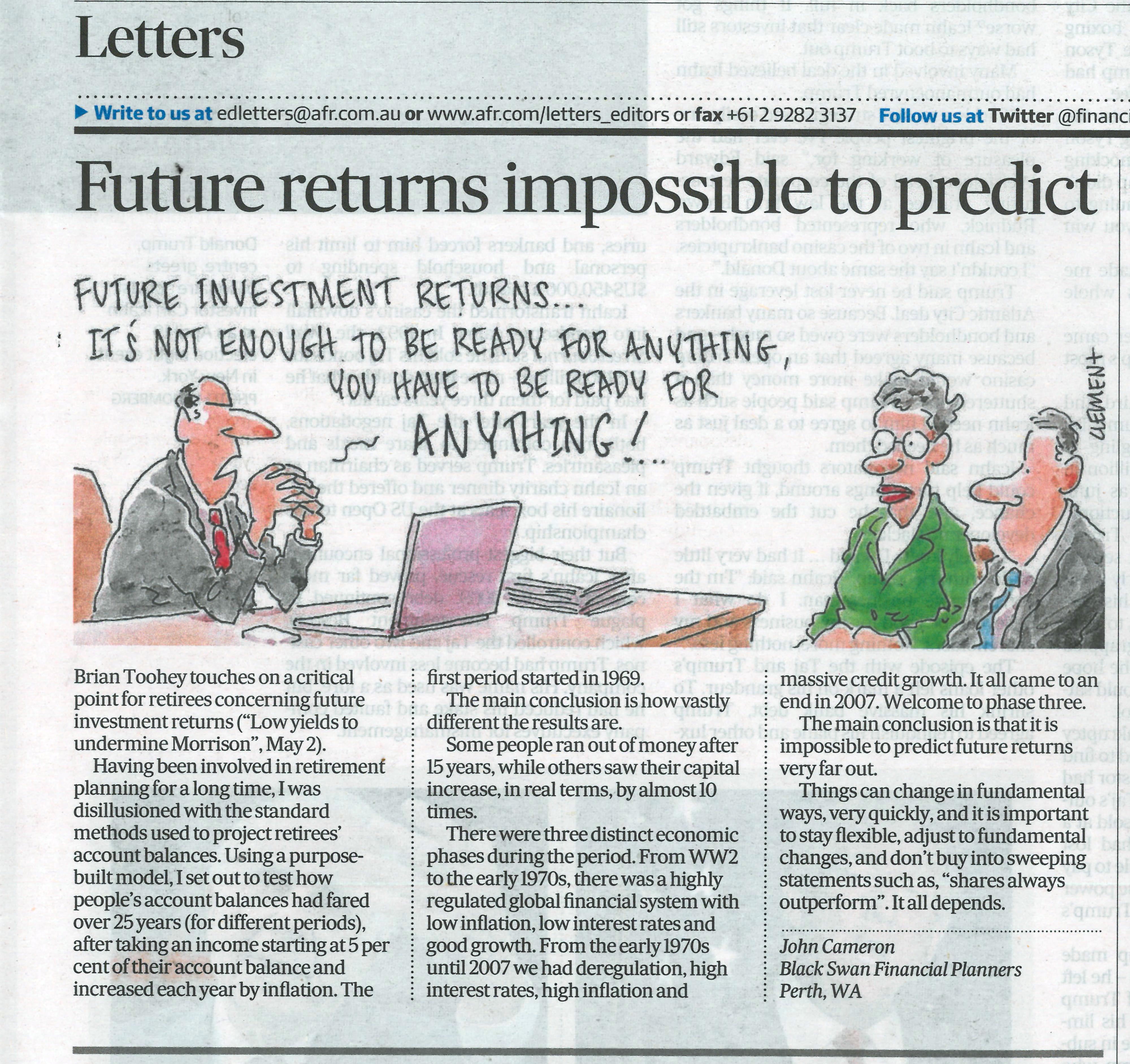Traditionally investments such as government bonds have been considered “safe”, whereas shares are considered “risky”.
So pervasive has this been, that, in the jargon of financial markets, when somebody talks about “taking on more risk”, what they are really saying is that they are selling bonds and buying shares (or using cash to buy shares). Conversely, if they are selling shares and moving to bonds or cash, they are “reducing risk”.
Now, it seems, the jargon is moving mainstream. I recently saw a retiree being interviewed on television. In order to make ends meet, he said he was “taking on more risk” with his investments.
...
